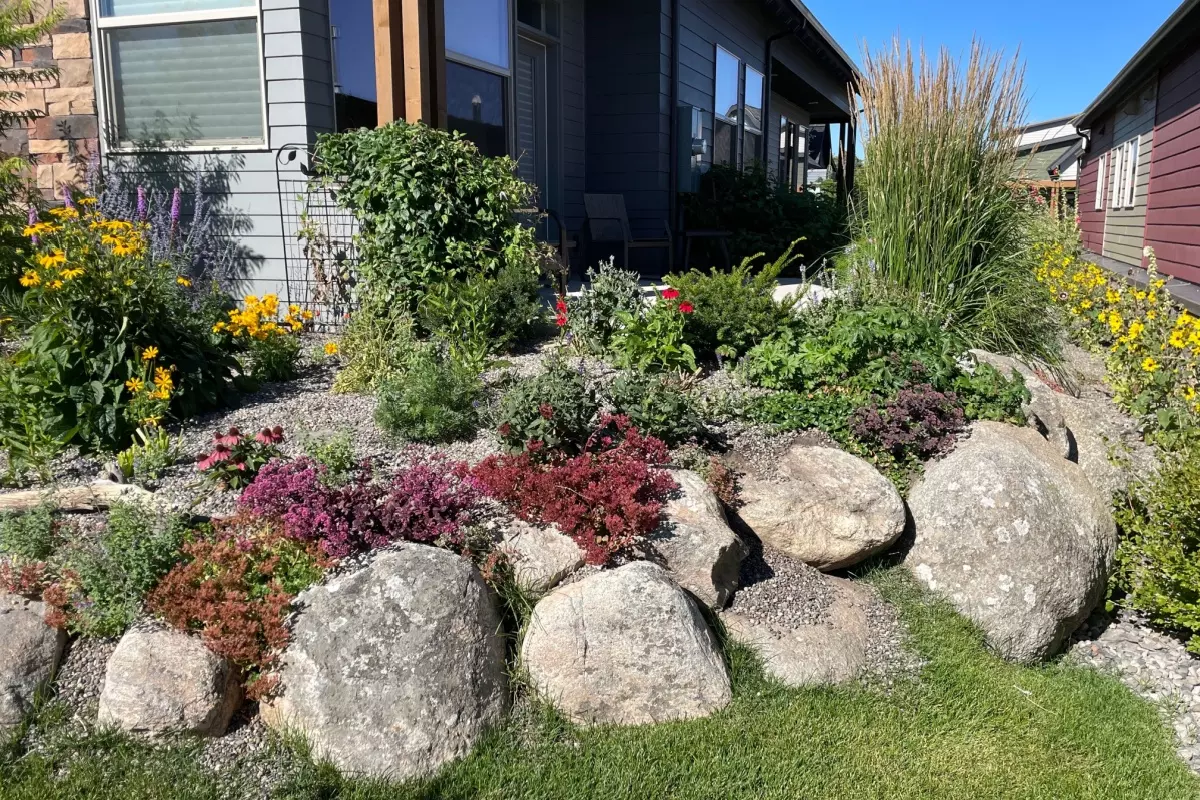You’ve decided to jump headfirst into entrepreneurship and start your own landscaping company. But where do you start?
First and foremost, you need to make sure that you are abiding by your state’s laws and regulations. This means your top priority before starting your company is learning how to get a landscaping license.

To help you get your business up and running, the following sections will cover the types of landscaping licenses, licensing requirements by state, and how to get a landscaping license.
What Licenses Are Needed to Start a Landscaping Business?
The most important question you’ll likely have is: do you need a license for landscaping? The answer depends on the state you are planning to operate in.
Most states don’t require a landscaping certification or license to conduct basic services like lawn care, planting, and general maintenance and clean-up. However, a minority of states do require a landscaping license to legally operate your business.

You can check with your state’s Contractors State Licensing Board (CSLB), Department of Agriculture, or Department of Business and Professional Regulation to see if you need a license before starting your landscaping business.
Even if your state doesn’t require a license to complete basic services, you will still likely need to be a licensed landscaper to offer specialized services. For instance, if you plan to offer pest removal services, work with pesticides, hardscape, or provide tree removal, you’ll need to get the appropriate licenses.
Types of Landscaping Licenses
Regardless of whether your state requires a landscaping license, you must get a business license to start a company. A business license is mandatory in all states. It authorizes you to operate your business within the state and demonstrates that you are complying with local regulations.
To get a business license, you must:
- Choose a Business Structure: First, decide how you want to structure your business, as this will affect your taxes and liability.
- Sole proprietorships are great for landscapers who are just starting out as it is the easiest way to start a business. Taxes will be deducted from your personal tax return. However, you’ll be personally and financially liable for all business debts.
- A partnership structure is suitable for landscapers who want to share expertise, resources, and responsibilities. Taxes will be deducted from each partner’s personal tax return. All partners will be personally and financially liable for business debts.
- A corporation is ideal for landscaping businesses looking to grow, as it combines tax benefits with liability protection. Taxes will be deducted from the owner’s personal tax return. Individuals will be protected from personal and financial liability for the business’s debts.
- Get an Employer Identification Number (EIN): An EIN is like a Social Security number for your business. It is required to file taxes, hire employees, and open a business bank account. You can obtain an EIN from the Internal Revenue Service (IRS) website.
- Register Your Business Name: Next, you will likely be operating your landscaping business under a company name rather than your own name. If so, you will need to register for a Doing Business As (DBA). You can complete this step at your county clerk’s office or state’s business registration office.
- Apply for the License: To formally submit your business license application, visit your county clerk’s office. You will need to complete the application forms, provide information about your business, and pay a licensing fee.
- Obtain Certifications and Permits: Depending on your state and the services your landscaping business will be offering, you might need to get additional permits and certifications. These may include a pesticide application, irrigation, or horticulture certification. Check with your state’s Department of Agriculture.
While a business license is mandatory to start a business and offer services, a landscaping license is not in a majority of states. Currently, only 15 states require a landscaping license.
As mentioned before, licenses will likely be required for specialized landscaping services. These include:
- Pesticide Applicator license: This certification ensures you are proficient in safely using chemicals and pesticides to protect the environment and public health.
- Irrigation license: This license demonstrates your expertise in designing and installing irrigation systems that conserve water.
- Horticulture license: This license highlights your skills in plant cultivation, care, and maintenance, as well as soil management, pest control, and fertilization.
- Tree Surgery license: With this license, you showcase your expertise in tree care and maintenance, including disease control and surgery techniques.
Bonds and Insurance Coverages a Landscaping Company Needs
Similarly, in some states, you may also be required to have a surety bond and business insurance before you can start operating. A surety bond provides a financial guarantee to your clients that the work will be completed. If your landscaping business fails to comply with the contract, the surety bond can financially compensate the client for losses or additional expenses.

Some states may also require business insurance before you can start offering landscaping services. Here are the main types of insurance they may require:
- General Liability Insurance protects the company against claims of bodily injury and property damage.
- Workers’ Compensation Insurance covers your employees’ medical expenses and lost wages if they are injured on the job.
- Commercial Auto Insurance covers business vehicles against accidents, theft, or other damage.
- Equipment Insurance covers the repair or replacement cost for landscaping tools, machinery, and equipment.
Even if your state doesn’t require a bond or insurance, it may still be a good idea to obtain both. A bond can provide financial reassurance to potential clients, improving your chances of attracting more landscaping leads. The same goes for business insurance – it provides protection to your clients, employees, and business operations.
Landscaping License Requirements by State
Do you need a license to do landscaping in your state? Here’s a breakdown of each state’s requirements and recommended licenses:
| State | Is a License Required? | License(s) | Requirement(s) | State Licensing Department |
|---|---|---|---|---|
| Alabama | Yes |
|
|
Alabama Board of Examiners of Landscape Architects |
| Alaska | Yes |
|
|
Alaska Division of Corporations |
| Arizona | No |
|
|
N/A |
| Arkansas | Yes |
|
|
Arkansas Contractors Licensing Board |
| California | Yes |
|
|
California Contractors State License Board |
| Colorado | No |
|
|
N/A |
| Connecticut | No |
|
|
N/A |
| Delaware | No |
|
|
N/A |
| Florida | No |
|
|
N/A |
| Georgia | No |
|
|
N/A |
| Hawaii | Yes |
|
|
Contractors License Board |
| Idaho | Yes |
|
|
Idaho State Department of Agriculture |
| Illinois | No |
|
|
N/A |
| Indiana | No |
|
|
N/A |
| Iowa | No |
|
|
N/A |
| Kansas | No |
|
|
N/A |
| Kentucky | No |
|
|
N/A |
| Louisiana | Yes |
|
|
Horticulture Commission of Louisiana |
| Maine | No |
|
|
N/A |
| Maryland | No |
|
|
N/A |
| Massachusetts | No |
|
|
N/A |
| Michigan | Yes |
|
|
Bureau of Construction Codes |
| Minnesota | Yes |
|
|
Department of Labor and Industry |
| Mississippi | Yes |
|
|
Department of Agriculture and Commerce |
| Missouri | No |
|
|
N/A |
| Montana | No |
|
|
N/A |
| Nebraska | No |
|
|
N/A |
| Nevada | Yes |
|
|
Nevada State Contractors Board (NSCB) |
| New Hampshire | No |
|
|
N/A |
| New Jersey | No |
|
|
N/A |
| New Mexico | No |
|
|
N/A |
| New York | No |
|
|
N/A |
| North Carolina | Yes |
|
|
North Carolina Landscape Contractors’ Licensing Board |
| North Dakota | No |
|
|
N/A |
| Ohio | No |
|
|
N/A |
| Oklahoma | No |
|
|
N/A |
| Oregon | Yes |
|
|
Landscape Contractors Board (LCB) |
| Pennsylvania | No |
|
|
N/A |
| Rhode Island | No |
|
|
N/A |
| South Carolina | No |
|
|
N/A |
| South Dakota | No |
|
|
N/A |
| Tennessee | Yes |
|
|
Tennessee Board for Licensing Contractors |
| Texas | No |
|
|
N/A |
| Utah | Yes |
|
|
Utah Division of Occupational and Professional Licensing (DOPL) |
| Vermont | No |
|
|
N/A |
| Virginia | No |
|
|
N/A |
| Washington | No |
|
|
N/A |
| West Virginia | No |
|
|
N/A |
| Wisconsin | No |
|
|
N/A |
| Wyoming | No |
|
|
N/A |
Steps to Get a Landscaping License
Now, we move our focus to the most important question: how to get a landscaping license. Here are the general steps to becoming a licensed landscape contractor:
- Check State Licensing Department Requirements
As we’ve seen, licensing requirements vary widely by state. First, start by contacting the relevant state agency – this might be the Department of Agriculture, Department of Consumer Affairs, or Contractors State Licensing Board. You can clarify what the licensing, experience, education, and exam requirements are.
- Make Sure You Qualify
Based on the state’s requirements, you may need to fulfill certain requirements before you can apply for a landscaping license. To qualify, you might need to have a certain number of years of hands-on experience or formal education. If you don’t meet those requirements, you will need to complete the required training or coursework and provide proof of completion before you can move on to the next steps.
- Submit Your Application
Once you have met the pre-licensing qualifications, obtain the application from the relevant licensing agency mentioned above. As part of your application, you will need to provide information about your business, experience, and education. You will also need to submit documents like your business license, transcripts, or proof of apprenticeship completion.
- Pass Licensing Exam
The same state agency will also administer the landscaping license exam(s). Depending on your state’s requirements, you may take one exam or a series of exams. These will test your knowledge and skills in landscaping practices, business management, safety, and more. Exam fees range from $50 to $300. A passing score of 70% is typically required, but it varies by state. If you fail, you can retake the exam after you wait a specified period of time – usually two weeks to a month.
- Submit Proof of Bonding and Insurance
If you pass your exam(s), the state agency will require documentation proving your business has a surety bond and insurance. The amount of coverage depends on your state’s requirements, but most require at least a $10,000 bond and $1 million in liability coverage.
- Get Fingerprinted and Submit a Background Check
Next, the state agency will require a criminal check, which involves submitting to a background check and fingerprinting. This step can be completed at a police department or private fingerprinting location. The cost will range from $30 to $100.
- Pay Licensing Fee
If your background check clears, you can move on to the final step of getting your landscaping license: submitting the fees. The cost of a landscaping license varies, but it is usually around $50 to $500. Overall, it can take around one to three months to complete all the steps and receive your landscaping license.
How to Get a Landscaping License: FAQ
Still have questions about how to get a landscaping license? Here are some frequently asked questions and answers:
Can You Do Landscaping Work without a License?
It depends on the state you are planning to work in. Some states require a landscaping contractor license before you can start operating legally. Most other states don’t have the same requirement.
Refer to our table above for a full list of state-by-state requirements.
How Long Does it Take to Get Your Landscaping License?
The time it takes to get your landscaping license depends on the requirements of the state. Typically, it takes several months to complete the paperwork, pass the exams, and receive approval from the agency. However, some states require years of experience, which can prolong the process.
How Much Does a Landscaping Business License Cost?
Landscaping business license costs depend on the state and type of license. On average, the fees are a few hundred dollars.
How Much Education and Experience Are Required to Get a Landscaping License?
Education and experience requirements for a landscaping license depend on the state. Some states don’t require any experience or formal training, whereas others require several years of hands-on experience or at least an Associate’s degree.
Does a Landscaping License Increase Your Earning Potential?
Yes. Having a landscaping license showcases your expertise and skills to potential employers and clients. A license can be a great landscaping marketing strategy, giving you a competitive advantage and helping you earn more money.
How Can My Landscaping Company Make More Money?
Some homeowners may not have the funds to commit to a landscaping project. Rather than lose out on their business, you can offer landscaping financing to help them pay for services in a budget-friendly way.
With financing, your clients can explore their options and find a payment plan that fits their budget. If they are approved, you can start the project immediately.


